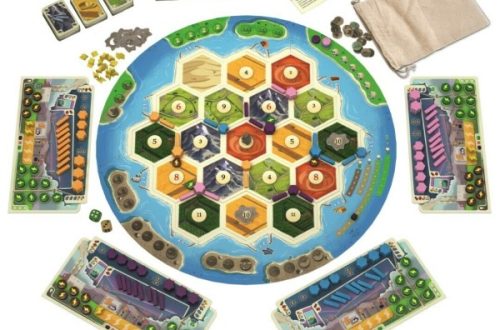Part 1: The Importance of Creativity in Childhood
Creativity is a vital aspect of childhood development, crucial for fostering imagination, problem-solving skills, and emotional expression. In this article, we’ll delve into the significance of unleashing creativity through board games for kids and explore the benefits they offer in nurturing young minds.
1. Imagination and Innovation: Board games stimulate imagination and innovation, encouraging children to think outside the box, invent new strategies, and explore different possibilities.
2. Problem-Solving Skills: Through board games, kids develop critical thinking abilities, learn to assess situations, and find solutions, laying the groundwork for analytical thinking in their formative years.
Part 2: Educational Board Games for Learning
Many board games are designed to be both entertaining and educational, contributing to a child’s intellectual development in various domains.
1. Math and Logic: Games that incorporate numerical concepts, spatial reasoning, and logical deduction, such as Math Bingo or Rush Hour, promote math skills and logical thinking.
2. Language and Vocabulary: Word-based games like Boggle or Bananagrams enhance language proficiency, expand vocabulary, and improve spelling and literacy skills.
Part 3: Cooperative Board Games for Teamwork
Cooperative board games facilitate teamwork, collaboration, and joint problem-solving, fostering strong social and emotional skills in children.
1. Communication: Cooperative games promote communication, active listening, and the sharing of ideas, contributing to the development of effective interpersonal skills.
2. Empathy and Support: By working together towards a common goal, kids learn to empathize, support one another, and appreciate the value of collective effort and encouragement.
Part 4: Creative and Artistic Expression in Board Games
Certain board games encourage creative and artistic expression, providing children with opportunities to explore their artistic inclinations and imaginative capacities.
1. Drawing and Storytelling: Games like Pictionary or Dixit inspire kids to visually express ideas, create narratives, and share their stories, nurturing creativity and self-expression.
2. Role-Playing and Pretend Play: Board games that involve role-playing, such as Animal Upon Animal or Rory’s Story Cubes, ignite imaginative play, allowing kids to invent characters, scenarios, and adventures.
Part 5: Developing Emotional Intelligence through Play
Board games serve as vehicles for developing emotional intelligence, helping children understand and manage their feelings and interactions with others.
1. Resilience and Sportsmanship: Playing board games teaches kids how to handle wins and losses gracefully, fostering resilience, empathy, and good sportsmanship.
2. Empathy and Perspective-Taking: By experiencing different in-game situations, kids learn to take on different perspectives, understand others’ feelings, and cultivate empathy.
Part 6: Nurturing Innovation and Critical Thinking Skills
Board games are instrumental in nurturing innovation, encouraging kids to think creatively and critically, laying the foundation for problem-solving in academic and real-life settings.
1. Strategic Thinking: Many board games require strategic planning, risk assessment, and adaptability, honing children’s ability to think critically and make informed decisions.
2. Adaptability and Flexibility: As kids engage in various board games, they learn to adapt to different rules, situations, and challenges, fostering flexibility and creative problem-solving.
In conclusion, unleashing creativity through board games is paramount in a child’s development, offering a multitude of educational, social, and emotional benefits. By engaging with an array of board games that foster creativity, learning, teamwork, and emotional intelligence, children are empowered to explore, innovate, and develop essential skills that will serve them throughout their lives.



